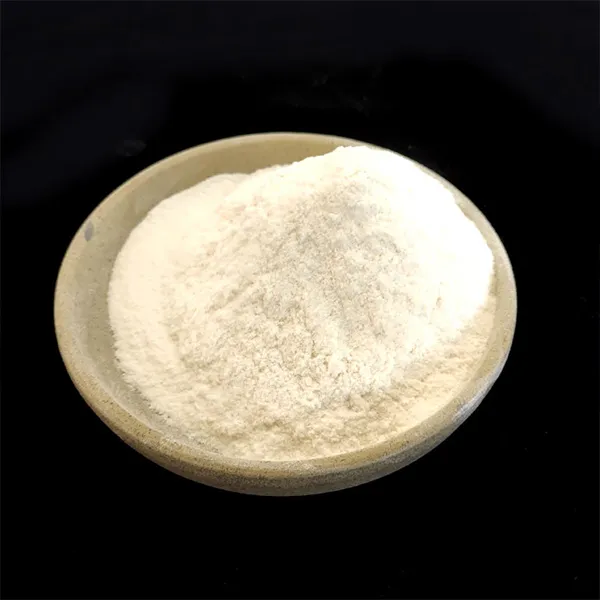A Comprehensive Guide to Buying Cellulose Ether
Cellulose ethers are a class of biodegradable polymers derived from natural cellulose, offering a range of functional properties that make them invaluable across numerous industries, including food, pharmaceuticals, cosmetics, and construction. With increasing awareness of sustainability and the shift toward environmentally friendly alternatives, the demand for cellulose ether is on the rise. For those looking to buy cellulose ether, understanding its types, properties, applications, and sourcing options is essential.
What is Cellulose Ether?
Cellulose ether is created by chemically modifying cellulose – a natural polymer found in plant cell walls. The modification process introduces different functional groups while maintaining the core cellulose structure, resulting in various cellulose ethers such as methylcellulose, ethylcellulose, and hydroxypropyl cellulose. Each type of cellulose ether possesses unique properties, including solubility, viscosity, and film-forming ability, making it suitable for specific applications.
Types of Cellulose Ethers
1. Methylcellulose (MC) Often used as a thickener and emulsifier in food and cosmetics, MC is soluble in cold water and forms a gel when heated. It is commonly found in ice cream, sauces, and even in pharmaceuticals as a binder.
2. Hydroxypropyl Methylcellulose (HPMC) Known for its high viscosity and thermal stability, HPMC is widely used in construction materials such as tile adhesives and plasters. It also serves as a thickener and stabilizer in various formulations.
3. Carboxymethyl Cellulose (CMC) CMC is highly soluble in water and acts as a thickening agent. It is often found in products like toothpaste, food, and pharmaceuticals.
4. Ethylcellulose (EC) This non-ionic cellulose ether is insoluble in water but soluble in organic solvents. It's primarily used in coatings and as a binder in various formulations.
Why Buy Cellulose Ether?
There are several compelling reasons to consider purchasing cellulose ether for your needs
- Versatility As mentioned, cellulose ethers can perform multiple roles in various formulations – from thickening to gelling to acting as film-formers
.- Sustainability With growing consumer demand for eco-friendly products, cellulose ethers derived from renewable sources present a sustainable alternative to synthetic polymers.
- Regulatory Compliance Many cellulose ethers are recognized as safe for use in food and pharmaceuticals, making them compliant with global regulations, which is crucial for manufacturers and consumers alike.
buy cellulos ether

Key Considerations When Buying Cellulose Ether
1. Purity and Quality Always opt for suppliers who provide high-purity cellulose ethers, as contaminants can affect product performance. Check if the supplier provides Certificates of Analysis (CoA) for their products.
2. Source and Certification Look for suppliers who emphasize sustainable sourcing and have certifications such as ISO or GMP (Good Manufacturing Practices). This ensures that the material meets specific quality and safety standards.
3. Application-Specific Specifications Different applications demand different grades of cellulose ether. Make sure to clearly communicate your needs to the supplier so they can recommend the most suitable product.
4. Quantity and Availability Consider your project’s scale and the supplier’s inventory. Some suppliers specialize in bulk orders, while others cater to smaller businesses.
5. Pricing and Payment Terms Compare prices from multiple suppliers, but be wary of unusually low prices, which could indicate inferior quality. Understand the payment terms and shipping logistics.
Where to Buy Cellulose Ether
Cellulose ether can be purchased from various sources
- Chemical Suppliers Many companies specialize in supplying chemical raw materials, including cellulose ethers. Some well-known suppliers include Dow Chemical, Ashland, and Shin-Etsu.
- Online Marketplaces Websites like Alibaba and Amazon may offer cellulose ethers, but it’s crucial to verify suppliers, read reviews, and ensure product specifications meet your requirements.
- Local Distributors Engaging with local suppliers can facilitate easier communication, faster shipping, and potential bulk discounts.
Conclusion
Buying cellulose ether involves understanding the different types available, their applications, and sourcing practices. By keeping the above considerations in mind and selecting a reputable supplier, you can ensure that you acquire high-quality cellulose ether suitable for your specific needs. As the market for sustainable materials continues to grow, cellulose ether stands out as an effective, versatile, and eco-friendly choice for innovative formulations across numerous industries.
-
Rdp that The Revolutionary Polymer Powder Transforming Modern Construction MaterialsNewsAug.11,2025
-
Hpmc Powder that Versatile Additive for Detergents and Personal CareNewsAug.11,2025
-
Hpmc Hydroxypropyl Methylcellulose that Essential Building Material Additive from Shijiazhuang Gaocheng YongfengNewsAug.11,2025
-
Hydroxypropyl Methyl Cellulos Hpmc that Essential for Construction ApplicationsNewsAug.11,2025
-
Mhec Powder that Revolutionizing Construction Chemistry with Cellulose Ether SolutionsNewsAug.11,2025
-
Industri Hpmc that The Global Backbone of Advanced ConstructionNewsAug.11,2025




